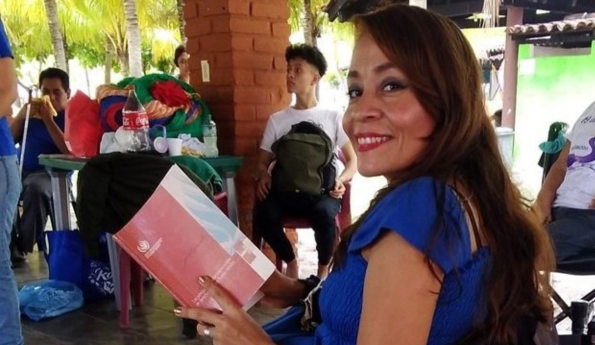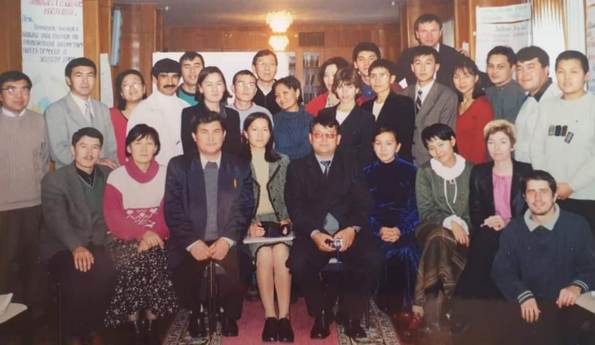By Kulsoom Rizvi
To mark the end of the 16 Days of Activism Against Gender Violence Campaign, a call for the elimination of all forms of violence against women, Counterpart’s Women’s Participation Project (WPP) along with the “Clean World” Public Union and Citizen’s Labor Rights Project League organized a public discussion on making gender equality a reality.
60 people attended the event focused on how current laws in Azerbaijan can be made more efficient in preventing domestic violence, protecting victims, and consequences of early marriages. Participants included key representatives from the government, international organizations, local NGOS, media and university students.
“Domestic violence is a crime and it can affect anyone in the community, regardless of gender, age, economic status or location. It shouldn’t be approached as a ‘family matter’ and should be prevented through well-functioning laws,” Country Director Ilgar Agassiyev said. “Two major obstacles to preventing and responding to gender-based violence are women’s lack of decision-making power in social contexts and their under-representation as leaders.”
WWP is a four-year initiative in partnership with the State Committee for Family, Women and Children’s Affairs and funded by the U.S. Agency for International Development, aiming at improving the status of women in Azerbaijan through public awareness of issues affecting women and empowering women to play active roles in the economic, social and political arena.
Mechanisms of State-Intervention to Prevent Domestic Violence
Although the law on Prevention of Domestic Violence was adopted in 2010, changes to criminal legislation have gone untouched. WPP submitted recommendations a few months ago on improving gender legislation – included into the National Action Plan combatting domestic violence in Azerbaijan and expected to be adopted next year.
“National Plan of Action is quite crucial in foreseeing change in GBV because it is a document which will urge many governmental agencies and NGO’s through designating specific tasks to coordinate and consolidate their activities towards combating domestic and gender-based violence,” Agassiyev said.
Participants of the discussion tackled the issue of state intervention into intra-family conflicts and the lack of effective implementation mechanisms for existing laws. Ceyhyn Garacayev, Judge of the Constitutional Court pointed out an issue in gender-based violence cases.
“There shouldn’t be restriction in appeals in cases of domestic violence. Not only the direct victims of domestic violence, but others, e.g. neighbors, or any other person who witnesses the violence also should be allowed by law to appeal,” he said.
Taliya Ibrahimova, from the State Committee for Family, Women and Children’s Affairs, spoke about consequences of early marriages noting that the Committee was able to prevent the cases of early marriages especially in rural areas through collaboration with local law enforcement bodies.
Topics also included the importance of raising awareness starting from the schools to universities in breaking stereotypes and identifying the root causes of gender-based violence.
“Public discussions are a way to gather diverse and powerful voices in Azerbaijan to raise awareness of domestic and gender-based violence,” Agassiyev said. “Those who attended the event are critical players in creating a long-lasting impact on gender equality principles and policies in the country.”




